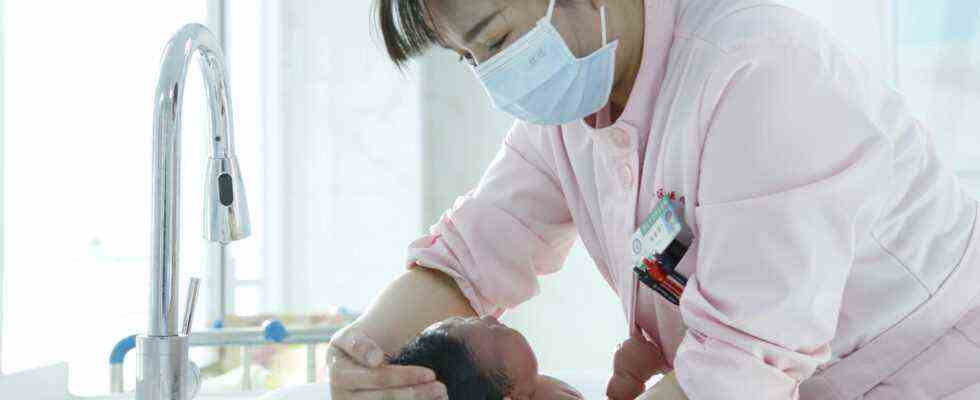Status: 01/21/2022 05:18 a.m
According to a US study, children born during the corona pandemic develop more slowly in the first six months than pre-corona babies. Mobility and social skills are particularly affected.
New York City is often referred to as the epicenter of the corona pandemic. Indeed, during the spring and summer of 2020, the virus spread rapidly across the city. The health system was completely overwhelmed. At times, 800 people died with Covid-19 every day. But: Babies were also born during this time.
The effect on the child if the mother was infected with corona during pregnancy should now be examined in a study. Finally, one knows, says the pediatrician Dani Dumitriu, one of the authors of the study: “With other infections, the mother’s immune system is activated in such a way that the baby is damaged.”
That was the starting point of the investigation. To their surprise, however, the researchers could find “nothing like that” with Corona: “As far as the development of the child is concerned, there is no difference whether the mother was infected during pregnancy or not.”
Where the pandemic kids fared worse
Together with Lauren Shuffrey from New York’s Columbia University, Dumitriu then compared the data from 255 babies born between March and December 2020 during the pandemic with the data from a group of newborns before the corona outbreak. “We found that the pandemic children did slightly worse after six months in terms of gross and fine motor skills and social skills,” says Dumitriu.
The difference is particularly significant in the children whose mothers were in the first trimester of pregnancy when the pandemic broke out. “The difference in development compared to the historical cohort is greatest here,” says the pediatrician.
The study cannot provide a reliable answer as to why this is the case, says Dumitriu. But: “We know from research on animals and humans that stress during pregnancy affects the development of the fetus. And the earlier this stress occurs in pregnancy, the more likely this effect is to occur.”
Uncertainty that weighs you down
The two researchers studied the development of babies born very early in the pandemic. At a time when the uncertainty and the associated stress for mothers was particularly great. But even now, pregnant women are still exposed to corona stress. “The first stress was particularly intense, the stress of the unknown. Instead, there is now a different type of stress that could also have an impact on the babies’ development,” says Dumitriu.
“We have been in this pandemic for almost two years now. We are in the middle of a new wave. We may know roughly how to behave. But many are now suffering from overwhelming exhaustion,” says the researcher.
Long-term consequences not yet foreseeable
It’s a debilitation with unknown effects on the babies to be born in the coming months. The long-term consequences of the pandemic for children are far from predictable anyway.
But there could also be positives, Shuffrey says, such as parents being able to spend more time at home with their babies because they don’t have to commute to the office. “Something like this could lead to a better development of at least some children. We will examine this in further studies,” says the co-author.
According to the researchers, there is no reason for too much concern anyway. On the one hand, the developmental differences found between pandemic and pre-corona babies are only small. On the other hand, it is a very early stage of development. “Nothing is set in stone. We still have plenty of time to intervene. That’s why this research is so important. Not to predict anything bad, but so that we can intervene quickly to influence the development of these children.”
Study in New York: Pandemic babies develop more slowly in the first few months
Peter Mücke, ARD New York, January 20, 2022 7:32 a.m

